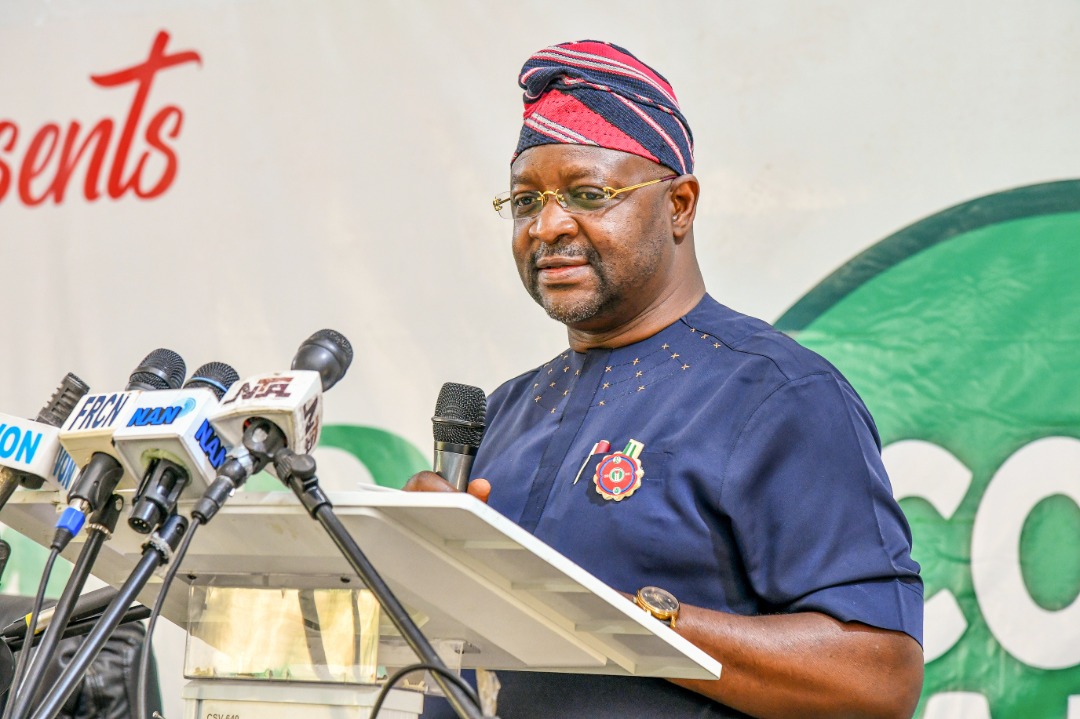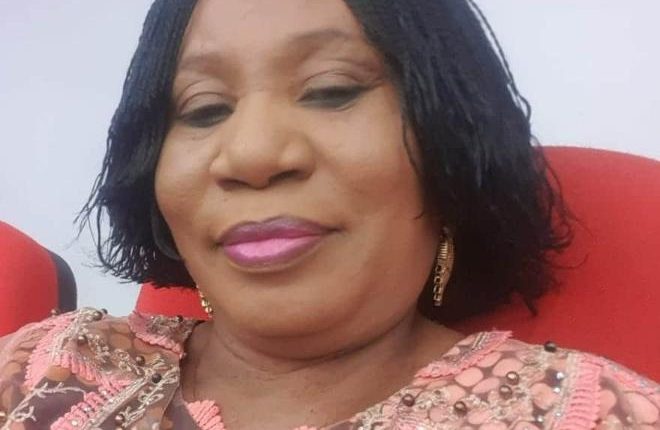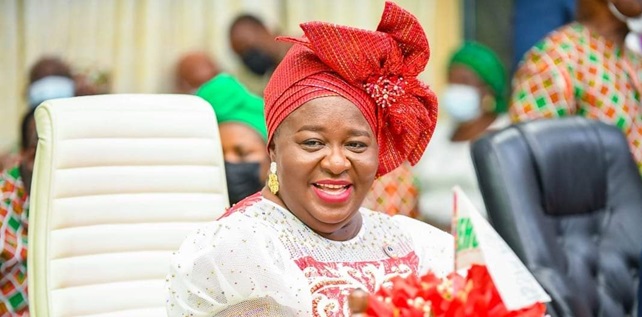**Advises youths to shun bigots, sponsors of violence
The minister of Youth and Sports Development Sunday Dare has linked the insurgency and terrorism that has been ravaging the Northern parts of the country to activities of religious bigots who feed some gullible individuals with negative religious ideologies and fundamentalism.This the Minister said can easily instigate them into taking up arms against their fellow human beings particularly people that have divergent views from their belief.The minister spoke at the National Programme on preventing and countering violent extremism among Youth (PCVE) in collaboration with the office of the National Security Adviser to the President held on Wednesday at the Cinema Hall,Cyprian Ekwensi Center for Arts and Culture in Abuja.According to the minister, the issue which was previously addressed as mere religious intolerance has snowballed into violent extremism with its global dimension of terrorism”You may wish to recall that this agitation has birthed the dreaded Bokoharam, which has ravaged the country, particularly in the North East part of the country, in the last 13 years.
he therefore admonished the youths to shun such bigots and sponsors of violence in their own interest as they do not mean well for them and the country.

“This sect has launched several attacks by bombing places of Worship, Public buildings, Security formations, Police Headquarters, including the UN building.
“The dastardly activities of this terrorist group have destroyed severa! billion naira worth of properties, and more devastatingly sent several thousands of people to their early graves, while many communities have been sacked, turning people there-from into IDPs, with its attendant implications.
“The whole of North East was almost overwhelmed at a point, when the daring Bokoharam sect was hoisting its flag in some local government areas in the North East, Borno State in particular.
“Alongside the terrorist activities of Bokoharam are also the farmer-herder clashes that have also resulted in killings of many farmers and sacking of several ones from their farmland, with the resultant implication of high prices of food items, due to
insufficient supply, as Most of the sacked farmers have been turned to IDPs and could not go back to their farms.
“While the country was yet contending with the harrowing and devastating effects of the activities of Bokoharam and herdsmen, another terrorist group by the name ISIS/ISWAP invaded the North West, kidnapping and abducting people for ransom to the tune of tens to hundreds of millions of naira; killing victims whose ransom could not be paid in the process.
“I am glad to inform you that currently, the Ministry has started synergizing with the Office of the National Security Adviser to the President, hence the collaboration between the Ministry and ONSA for this important programme.
“Violent Extremism is one of the terrible security challenges facing the world today, and they are attributable to some human factors, such as socio-economic inequality, ethnic jingoism, religious fundamentalism or fanaticism and political ideological differences.
“Although, it is a global phenomenon, Nigeria has however been bedeviled with violent extremism in recent years, which is being sponsored or executed by some ethnic bigots or religious fundamentalist.
“What could have been regarded as genuine and lawful agitations have been hijacked by some unscrupulous individuals, sponsoring misguided youth to foment violent destruction and killings, in the name of seeking redress for being marginalized in the scheme of things.
“Hiding under this pretext, public facilities have been attacked, vandalized and destroyed; as we have witnessed in the cases of Police stations and INEC offices across some states of the country.
“As you may also be aware, some private individuals and security personnel have fallen victims as casualties of the dastardly acts of these violent agitators.
“The youth being used to perpetrate these heinous maiming, killings and destructions are ignorant, and not wary of their unpatriotic sponsors, whose actions in most cases are borne out of hatred, and attempts to settle business or political scores.
“The wicked money bags usually exploit the high unemployment and appalling socio-economic status of the unsuspecting youth, who are full of vigour, vibrancy and energy, to be lured into violent.
The Moderator/Lead Facilitator,
Theophilus Ekpon said the workshop on Preventing and countering Violent Extremism (PCVE) is designed to strengthen resilience in communities and among youths with the aim of forging responsive actions.
“We wish to understand what the youths are doing on PCVE in terms of early warming and response, multi-stateholders engagementand social cohesion and countering terrorists narratives and ideologies.
“We are hopeful that information on what the youths are doing on PCVE will help the government and stakeholders to support them technically and financially to ensure peace and security in Nigeria.
He said the workshop is also part of the implementation of UN Secretary General ‘Plan of action to prevent violent extremism’
He said it is worrisome that Nigeria continued to face profound terrorism challenges, the third highest in the world according to the Global Terrorism Index 2020.
“From the advent of Boko Haram in 2009 to the infamous kidnapping of the Chibok schoolgirls in 2014 and the growth of the Boko Haram splinter group, Islamic State West Africa Province (ISWAP), Nigeria-based terrorist groups have risen to international prominence.
“Moreover, the terrorist threat originating in Nigeria has evolved into a transnational terrorist challenge threatening the security of civilian populations in Nigeria and its neighboring countries, especially Cameroon, Chad and Niger.
“In May 2014, Boko Haram was added to the Security Council’s Al-Qaida Sanctions list and, in 2015, Boko Haram pledged alliance to ISIS/ISIL.
“Since Boko Haram rose to prominence, the Government of Nigeria has been working to address the challenges posed by the terrorist threat through counter-terrorism legislation and related action plans.
“In 2011, the Terrorism Prevention Act was passed, followed in 2013 by its Amendment Act.
“In addition, the Nigerian government has also developed a National Counter-Terrorism Strategy (NACTEST) which was adopted in 2014 and revised in 2016, and a National Countering Violent Extremism Programme in 2016, with a Policy Framework and National Action Plan for Preventing and Countering Violent Extremism launched in 2017.
“Both documents address a broad range of areas which are important to countering terrorism and addressing the conditions conducive to terrorism.”
According to him the Ministry of Youth and sports Development is a member of the Steering committee on Preventing and Countering Violent Extremism, “Thus the onus is on us to contribute our quota through ensuring the implementation of the National Action Plan for PCVE through well thought-out programmes which will promote youth inclusiveness in affairs that affect them, most especially in maintenance of peace and security.”




